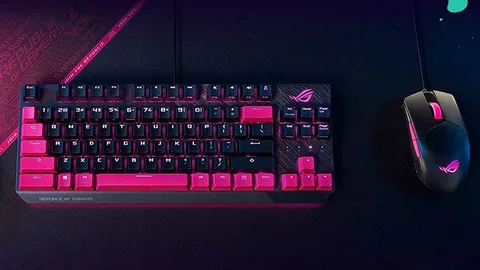When it comes to gaming keyboard, one of the most critical factors influencing overall performance is the type of mechanical switches used. Gamers often debate the merits of different switch types, as each provides a unique feel, responsiveness, and durability. Understanding how mechanical switch types affect gaming keyboard performance can help gamers make an informed choice tailored to their play style.
Understanding Mechanical Switch Types
Mechanical switches are the heart of any gaming keyboard. Unlike membrane keyboards, mechanical switches use physical mechanisms beneath each key to register keystrokes. The most popular mechanical switch types include:
- Linear switches (e.g., Cherry MX Red): Smooth and consistent keystroke without tactile feedback.
- Tactile switches (e.g., Cherry MX Brown): Provide a bump feedback to signal key actuation.
- Clicky switches (e.g., Cherry MX Blue): Offer tactile feedback plus an audible click sound.
Each switch type delivers a distinct typing experience, which directly impacts gaming performance.
How Mechanical Switch Types Affect Gaming Keyboard Performance
Responsiveness and Actuation Force
One of the main ways mechanical switch types affect gaming keyboard performance is through responsiveness. For fast-paced games, switches with a light actuation force and shorter travel distance, such as linear switches, enable quicker key presses and rapid successive inputs. This responsiveness can provide a competitive edge in games that require high-speed reactions.
On the other hand, tactile and clicky switches offer feedback that helps prevent accidental key presses. This is particularly useful in games that demand precision, where knowing exactly when a key registers can improve accuracy.
Sound and User Experience
Mechanical switch types affect gaming keyboard performance beyond just speed and accuracy. The sound profile of the switches plays a role in the user’s comfort and environment. Clicky switches provide satisfying audible feedback, which some gamers find enhances immersion. However, the noise can be distracting during extended gaming sessions or in shared spaces.
Linear switches, being quieter, are ideal for gamers who prefer a stealthier typing experience. Tactile switches offer a balance between sound and feedback, making them versatile for both gaming and typing.
Durability and Longevity
The durability of mechanical switches also impacts gaming keyboard performance over time. Mechanical switches are generally rated for tens of millions of keystrokes, but the specific rating varies by switch type and brand. Gamers who invest in a keyboard with high-quality switches benefit from long-lasting performance and consistent feel, even after extensive use.
Choosing the Right Switch for Your Gaming Style
Ultimately, how mechanical switch types affect gaming keyboard performance depends on personal preference and gaming style. Competitive gamers may prioritize speed and responsiveness and lean towards linear switches. Casual gamers or those who type frequently may prefer tactile or clicky switches for better feedback.

